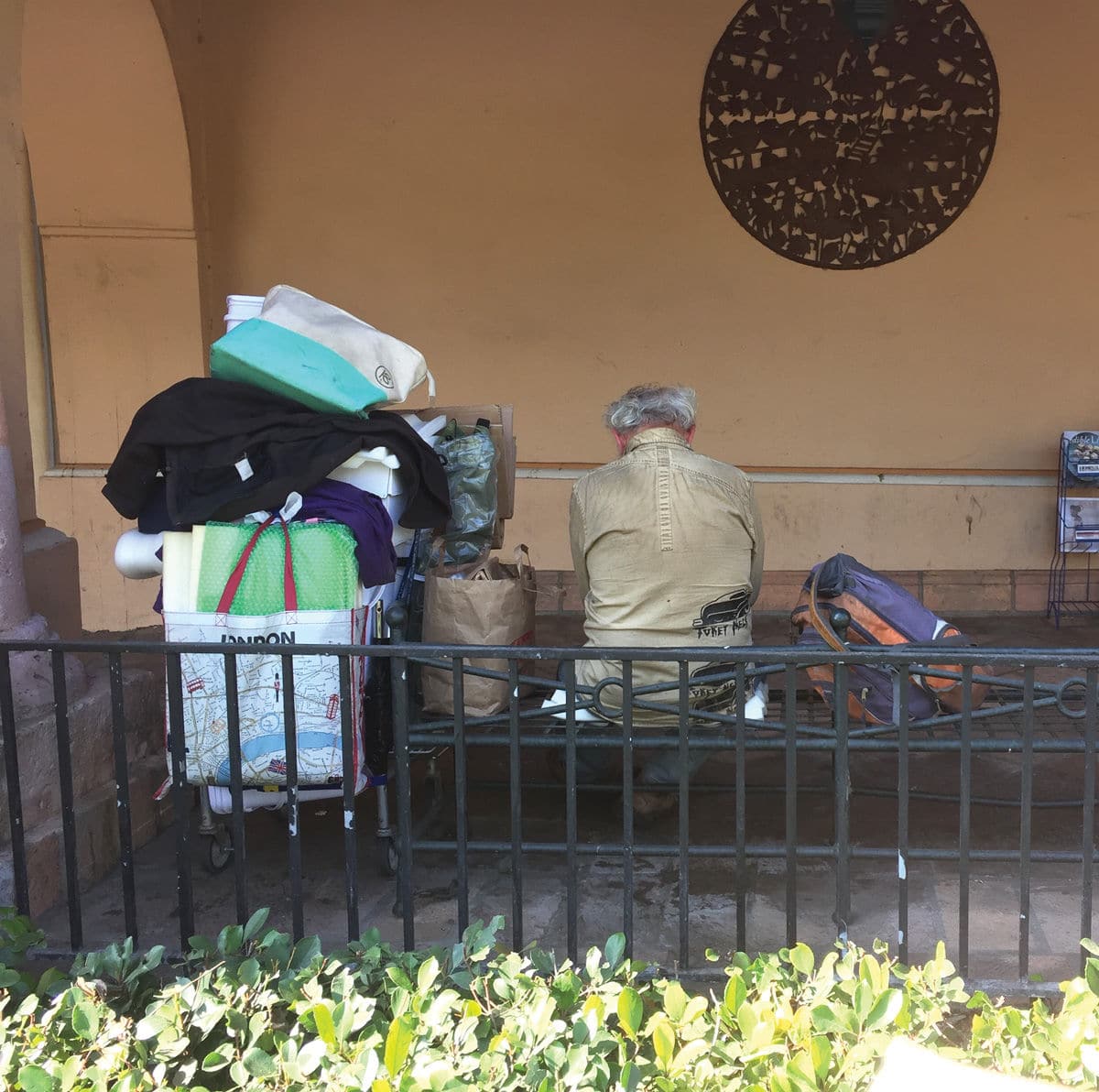People experiencing homelessness are at risk for all kinds of hazards, but the novel coronavirus emergency now makes their lives that much riskier. They can’t stay “Safer at Home” during the quarantine or even spend time at the local library, which is closed. Most public restrooms in town have been locked. The city has also turned off the water bottle filling stations and drinking fountains in public parks and cracked down on overnight parking along Pacific Coast Highway.
Despite all that, some things are being done to help protect local homeless people from the virus, which in turn helps protect the rest of the Malibu community. The annual homeless counts indicate that about 150 homeless reside in the Malibu area at any given time, although there has been some disagreement over the count numbers.
The People Concern, the Santa Monica-based nonprofit that contracts with Malibu to provide two full-time outreach workers to the homeless, is doing its part. CEO John Maceri told The Malibu Times the team working here is providing the homeless with personal protective equipment, especially masks, along with hand sanitizer. They are also distributing literature from the LA County Department of Public Health that explains social distancing and other safety protocols.
Although Maceri thinks some of the homeless are trying to practice social distancing, he sees “challenges for those living together in an encampment, because they’re not being monitored regularly.”
Field doctors that operate out of St. Joseph Center in Venice continue to visit homeless patients in Malibu once a week.
“The medical providers are still providing medical care,” Maceri confirmed. He was not aware of any of Malibu’s homeless testing positive for COVID-19.
When the state’s stay-at-home order first went into effect, Malibu’s outreach program was cut back temporarily for about two weeks until The People Concern was able to figure out how many teams could still be deployed and had clear guidelines from the county department of health on how to operate. Even now, Maceri said the stay-at-home order impacts their work because it reduces workforce availability.
“We have people [volunteers] in high vulnerability categories as well as parents that have to do homeschooling for their children,” he said. “That’s a big challenge, but we’re continuing to do the work in Malibu and moving forward.”
Meanwhile, Malibu’s nonprofit grassroots organization CART (Community Assistance Resources Team) along with the faith community continues to provide weekday lunches and a couple of dinners each week to the homeless population.
In addition, Carol Moss, CART founder, said they have just finalized arrangements that will allow Malibu’s homeless to receive free COVID-19 tests during drive-through testing events at City Hall—the homeless will be permitted to walk through. CART has just begun notifying the homeless about the opportunity.
Moss said the meals being served are all “grab and go” style as a safety precaution; free face masks and hand sanitizer are also passed out. Although people are asked to stand six feet apart while in line for food, it can get “sticky” after the lunches are handed out, because oftentimes people “congregate” while eating, she said.
There’s a new government program that may yet help some Malibu homeless during the pandemic. Project Roomkey, a collaborative effort by the state, county and LA Homeless Services Authority, is tasked with securing hotel and motel rooms across the county for medically vulnerable homeless to help prevent the spread of COVID-19. As an added benefit, officials hope the program will help keep hotels open and people employed. Federal Emergency Management Agency (FEMA) will pay 75 percent of the cost.
The program is off to a slow start. LA County was authorized to lease 15,000 rooms at the beginning of April, but only 2,700 have been leased so far and just 1,550 of those rooms have been occupied, according a recent article in the LA Times.
Maceri said some Malibu homeless have been referred to the Project Roomkey program, but none so far had been placed in a room.

